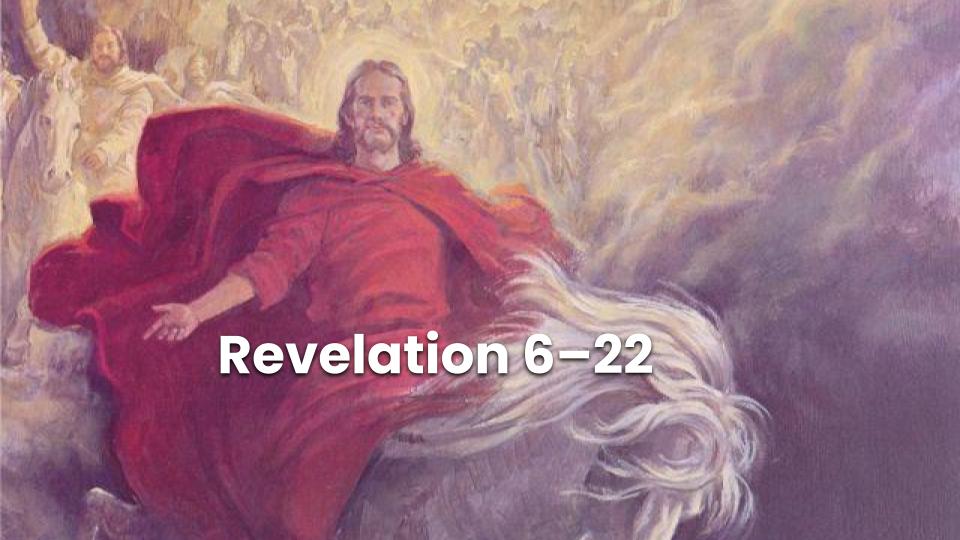Over the years, the Book of Hosea has become one of my favorites. The storyline is so powerful that it captures anybody who listens to it. In this post, I’ll share some thoughts about how Jesus used the Book of Hosea, and link to some modern video renditions of the book.
But first here’s a quick video overview of what’s happening in Hosea and why it matters in your life.
Christ’s Use of Hosea: Mercy Not Sacrifice
Christ’s use of Hosea connects directly with fence laws (if you’re not familiar with fence laws, here’s the video about them from my “Seeking Jesus” course). This is a tricky subject where it’s important to get the balance right. If we’re not careful, we can focus too much on nitpicky rules, or, on the other side, we can discard important guidance.
One day the Pharisees found fault when “many publicans and sinners came and sat down with [Christ] and his disciples” (Matthew 9:10). Indignant, the Pharisees asked Christ’s disciples, “Why eateth your Master with publicans and sinners?” (Matthew 9:11).
Christ’s response was clear “They that be whole need not a physician, but they that are sick. But go ye and learn what that meaneth, I will have mercy, and not sacrifice [Hosea 6:6]: for I am not come to call the righteous, but sinners to repentance” (Matthew 9:12–13). (Watch The Chosen’s version of this scene).
When Christ says he wants “mercy and not sacrifice” he is referring to the sacrificial offerings prescribed in the Law of Moses. It appears that some Israelites had lost sight of intent of the sacrifices, which had for some become merely outward rituals (e.g., Isaiah 1:11–17, Amos 5:22, Jeremiah 7:22–23). This is not to say that Christ sees no value in sacrificial offerings; however, even more than prescribed sacrifices, Christ desires us to be filled with mercy.
Christ quoted Hosea on another occasion, this time when the Pharisees criticized his disciples for plucking grain on the Sabbath day (Watch this clip from The Chosen depicting this moment). Although plucking grain did not violate the written prohibition in the Law of Moses regarding Sabbath-day work, it did break a fence law meant to prevent people from working. Christ said to them, “If ye had known what this meaneth, I will have mercy, and not sacrifice [Hosea 6:6], ye would not have condemned the guiltless” (Matthew 12:7). Again, at least part of Christ’s message seems to be, “The nitpicky extra rules are not the most important issue. When you are tempted to criticize others’ observances of your fence laws, have mercy instead. Focus on the weightier matters such as having a heart focused on loving God and others.”
Both times Christ quoted Hosea were in connection with fence laws rather than core commandments. This is an area where we have to be careful to keep several principles in balance, making sure our focus is on Jesus Christ. It’s easy to forget mercy and judge others. It’s also easy to discard spiritual promptings or prophetic counsel and say, “Anything goes.” Either one of these would be a mistake.
Directly after the confrontation with the Pharisees about plucking grain, Christ went to a synagogue where there was a man with a withered hand (see Matthew 12:9-10). The Pharisees asked Christ whether it was lawful to heal on the Sabbath. Christ healed the man and said, “it is lawful to do well on the sabbath days” (Matthew 12:12).
It is important to note Christ’s emphasis of doing good on the Sabbath. Although the Pharisees of his day (and perhaps some of us in the latter days) get caught up in a myriad of questions like, “Is it okay to do X on Sunday?” Christ was focused on doing well. The question is not, “Can I get away with doing X on Sunday?” but rather, “How can I do my Father’s will on the Sabbath?” We can focus on the better and the best, rather than simply the good.
We all face various tensions balancing striving to “do well” in a variety of spiritual endeavors while not becoming overwhelmed or judging others who do things differently. It can be very easy to become preoccupied with the minor matters instead of the weightier ones. Christ’s reminder to focus on mercy and not sacrifice has great relevance to each of us.
Modern Video Versions of Hosea
There are several modern retellings of Hosea. If I were introducing the book of Hosea to an audience of teens or adults, I would use this three-minute video as a readiness activity. This is the first of a six-part series (total of 17 minutes). The first clip is definitely my favorite, but the whole series is pretty good at illustrating a modern take on the Book of Hosea.
The movie, Amazing Love: The Story of Hosea is about a church youth group who goes camping. When some struggles in the group arise, the youth pastor tells them the story of Hosea, which is reenacted in film. It’s not the greatest Bible movie, but one could do worse on a Sunday afternoon. The best part of the film is the retelling of Hosea, which takes place from 28:51-1:07:55. That’s about 40 minutes and if you had time (e.g., a couple of days of seminary, or a Sunday afternoon with your family) could make for a great lesson if you paused the movie along the way to help people highlight and discuss some of the scriptural passages that are quoted in the movie. Here’s the movie link starting at 28:51 where Hosea enters the storyline.
Finally, it’s interesting to note that in 1982, Elder Ronald E. Poelman gave a General Conference talk in which he told a modernized of the story of Hosea. You can see his talk here.
Ultimately, Hosea is the story of God’s unfailing love. In Hosea 2:19-20, the Lord says, “I will take you for my wife forever; I will take you for my wife in righteousness and in justice, in steadfast love, and in mercy. I will take you for my wife in faithfulness; and you shall know the LORD.” The message is, no matter what you’ve done, God is not giving up on you.
If you’d like to receive emails with my newest videos and also get a free chapter from Considering the Cross: How Calvary Connects Us with Christ, sign up here.






